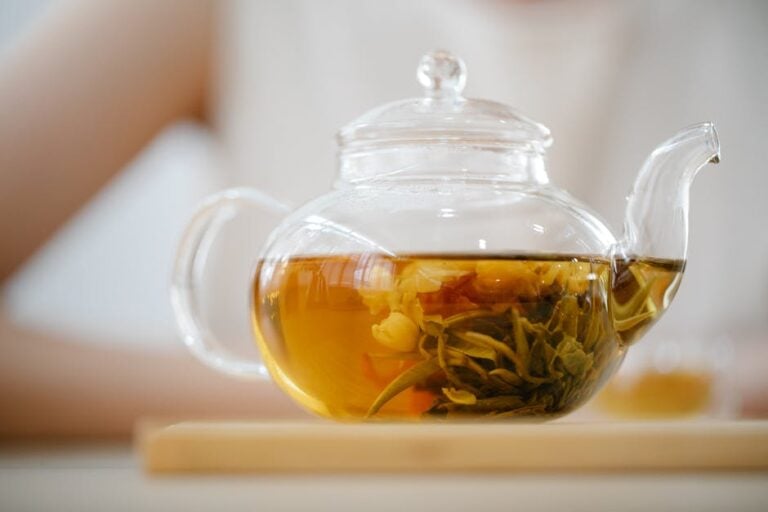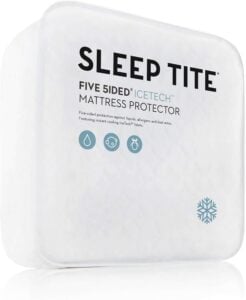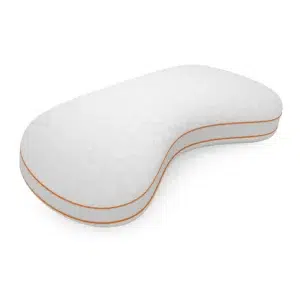Best Teas for Sleep: Top 6 Proven Picks for 2025
Why Best Teas for Sleep Matter
Finding the Best Teas for Sleep can be a game-changer when it comes to improving your sleep quality. If you’re in a hurry, here are top recommendations:
Top 6 Best Teas for Sleep:
- Chamomile Tea: Traditional Medicinals Organic Chamomile Herbal Leaf Tea
- Lavender Tea: Buddha Teas Organic Lavender Tea
- Valerian Root Tea: DavidsTea Valerian Nights
- Rooibos Tea: Brooklyn Tea Vanilla Rooibos
- Lemon Balm Tea: Lemon balm and valerian blend
- Passionflower Tea: Yogi Tea Bedtime
When it comes to sleep, good sleep hygiene is crucial. This includes having a consistent bedtime routine and creating an environment conducive to relaxation. Incorporating herbal teas into your nightly routine can significantly benefit your sleep quality. These teas are caffeine-free and contain natural ingredients known for their calming properties, helping you relax and ease into a restful sleep.
I’m Ben Trapskin, the creator of Yawnder. My journey to better sleep was driven by personal challenges, and through my experiences, I have developed a keen understanding of the Best Teas for Sleep to help you achieve a good night’s rest.

Best Teas for Sleep vocabulary:
Top 6 Best Teas for Sleep
Chamomile Tea
Chamomile tea is a classic choice for promoting sleep. This herbal tea contains apigenin, an antioxidant that binds to receptors in your brain, potentially reducing anxiety and initiating sleep. Studies have shown that chamomile can significantly improve sleep quality, especially for those with chronic insomnia.
Best Pick: Traditional Medicinals Organic Chamomile Herbal Leaf Tea is a favorite among tea enthusiasts. It’s known for its pure and potent chamomile flowers, ensuring you get the best calming effects.
Lavender Tea
Lavender tea is not only soothing but also offers the benefits of aromatherapy. The key compound here is linalool, which gives lavender its signature scent and helps reduce anxiety. Research suggests that the aroma of lavender can improve relaxation and improve sleep quality.
Best Pick: Buddha Teas Organic Lavender Tea is highly recommended. It’s crafted to provide both the aromatic and ingestible benefits of lavender, making it a dual-purpose sleep aid.
Valerian Root Tea
Valerian root is famous for its sedative properties. It works by increasing GABA (gamma-aminobutyric acid) levels in the brain, which helps reduce anxiety and improve sleep quality. Valerian root is often compared to pharmaceutical sleep aids but without the harsh side effects.
Best Pick: DavidsTea Valerian Nights is a robust blend that combines valerian root with other herbs. It’s potent enough to help you unwind after a stressful day, making it a strong contender for the best sleep tea.
Rooibos Tea
Rooibos tea is a caffeine-free option that’s packed with antioxidants. While it doesn’t have direct sedative effects, its health benefits can contribute to overall well-being, which in turn can improve sleep quality. Rooibos is also known for its cardiovascular benefits.
Best Pick: Brooklyn Tea Vanilla Rooibos offers a rich, fermented flavor similar to black tea but without the caffeine. It’s a comforting choice for those who want a relaxing drink before bed.
Lemon Balm Tea
Lemon balm is another herb known for its calming effects. It can help reduce anxiety and improve sleep quality, making it a great choice for those struggling with sleep disturbances. Often, lemon balm is combined with valerian root for an added sedative effect.
Best Pick: A blend of lemon balm and valerian is ideal. This combination improves the calming properties of lemon balm, providing a more effective solution for sleep issues.
Passionflower Tea
Passionflower tea is celebrated for its ability to increase GABA levels, promoting relaxation and improving sleep quality. This herb is particularly effective for those who experience mild anxiety, which can interfere with sleep.
Best Pick: Yogi Tea Bedtime is a well-known blend that includes passionflower along with other sleep-promoting herbs. It’s designed to help you relax and drift into a restful sleep.
By incorporating these teas into your nightly routine, you can create a calming ritual that supports better sleep. Each tea offers unique benefits, so you can choose the one that best fits your needs.
Next, we’ll explore how to seamlessly incorporate these sleep teas into your bedtime routine for maximum effectiveness.
How to Incorporate Sleep Teas into Your Routine
Incorporating sleep teas into your nightly routine can be a simple yet effective way to improve your sleep quality. Here’s how you can make the most out of these relaxing brews:
Establish a Bedtime Ritual
Creating a consistent bedtime ritual signals to your body that it’s time to wind down. A regular routine can help you transition from the hustle and bustle of the day to a more relaxed state ready for sleep.
- Choose Your Tea: Pick one of the best teas for sleep that suits your needs, such as chamomile or valerian root.
- Set a Schedule: Aim to drink your tea about an hour before bed. This gives your body enough time to absorb the calming compounds without needing to wake up for bathroom trips during the night.
- Create a Calm Environment: Dim the lights, play soft music, or light a candle. The goal is to create a peaceful atmosphere that promotes relaxation.
Incorporate Relaxation Techniques
Pair your tea with relaxation techniques to improve its calming effects.
- Deep Breathing: Practice deep breathing exercises to reduce stress. Inhale deeply through your nose, hold for a few seconds, and then exhale slowly through your mouth.
- Meditation: Spend a few minutes meditating. Focus on your breath or use a guided meditation app.
- Stretching: Gentle stretching can help release muscle tension and prepare your body for sleep.
Stick to a Sleep Schedule
Consistency is key to improving sleep quality. Try to go to bed and wake up at the same time every day, even on weekends. A regular sleep schedule helps regulate your body’s internal clock, making it easier to fall asleep and wake up naturally.
Tea Preparation Tips
The way you prepare your tea can also impact its effectiveness.
- Use Fresh Ingredients: Opt for high-quality, organic teas like Traditional Medicinals Organic Chamomile Herbal Leaf Tea or DavidsTea Valerian Nights. Fresh ingredients ensure you get the most potent benefits.
- Steep Properly: Follow the recommended steeping time on the package. Generally, herbal teas should steep for 5-10 minutes to extract their full benefits.
- Avoid Sweeteners: Sugar and artificial sweeteners can be stimulating. If you need to add flavor, consider a small amount of honey or a squeeze of lemon.
Make It a Habit
Incorporating sleep teas into your routine is not a one-night fix. Consistency is essential. The more regularly you include these teas in your bedtime ritual, the more effective they will be. Over time, your body will begin to associate the act of drinking tea with winding down for the night.
By following these steps, you can seamlessly incorporate sleep teas into your nightly routine, enhancing your overall sleep quality.
Next, we’ll address some frequently asked questions about the best teas for sleep to help you make informed choices.
Frequently Asked Questions about Best Teas for Sleep
What tea is the best for sleep?
When it comes to improving sleep quality, chamomile tea is often the top recommendation. Chamomile contains apigenin, an antioxidant that binds to certain receptors in your brain that may decrease anxiety and initiate sleep. A study published in the journal Phytomedicine found that chamomile extract significantly improved sleep quality in individuals with chronic insomnia.
However, chamomile is not the only option. Other effective sleep teas include:
- Valerian Root Tea: Known for its ability to increase GABA (gamma-aminobutyric acid) levels in the brain, which can reduce anxiety and promote relaxation.
- Lavender Tea: Often used in aromatherapy, lavender contains linalool, which has been shown to reduce anxiety and improve sleep quality.
Can you drink Sleepytime tea every night?
Sleepytime tea, which often contains a blend of herbs like chamomile and valerian root, can generally be consumed every night. However, it’s important to be aware of potential side effects and safety concerns:
- Valerian Root: While short-term use is considered safe for most adults, long-term safety remains uncertain. Some people may experience mild side effects like headaches or dizziness.
- Chamomile: Generally safe, but it may cause allergic reactions in people sensitive to ragweed.
Always consult with a healthcare provider before making any herbal tea a regular part of your nightly routine, especially if you are pregnant, breastfeeding, or taking medications.
What is the best time to drink tea for sleep?
Timing is crucial when drinking tea for sleep. Here are some tips to optimize its effectiveness:
- One Hour Before Bed: Aim to drink your tea about an hour before you plan to sleep. This allows enough time for your body to absorb the calming compounds and start feeling their effects.
- Bathroom Trips: Drinking tea too close to bedtime can lead to waking up during the night to go to the bathroom. To avoid this, make sure to finish your tea at least an hour before bed.

By following these guidelines, you can make the most out of your sleep tea and improve your overall sleep quality.
Conclusion
At Yawnder, we understand that achieving a restful night’s sleep is crucial for overall well-being. That’s why we offer expert evaluations and carefully curated sleep products to help you find the best solutions for your needs.
Herbal teas for sleep are just one of the many tools you can use to improve your bedtime routine. From chamomile and lavender to valerian root and rooibos, each tea offers unique benefits that can help you relax and improve your sleep quality.
Incorporating these teas into your nightly ritual can make a significant difference. The simple act of preparing and sipping a warm cup of tea signals to your body that it’s time to wind down. Pair this with other relaxation techniques, like calming melodies or a warm bath, to create a comprehensive bedtime routine.
The key to better sleep is consistency. Establish a regular sleep schedule, avoid screens before bed, and create a relaxing environment. And of course, choose the right herbal tea that suits your taste and sleep needs.
For more sleep products and expert advice, visit our Yawnder pillow collection. A good pillow, combined with the right tea, can make all the difference in achieving the restful sleep you deserve.
By following these tips and utilizing our expert evaluations, you can look forward to better sleep and improved overall health. Sweet dreams!


















